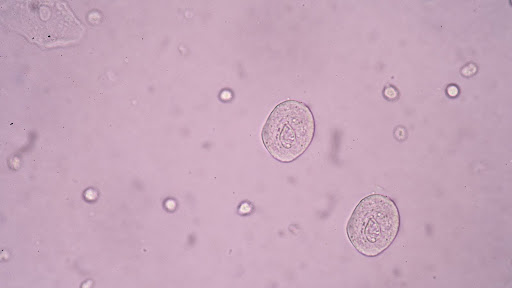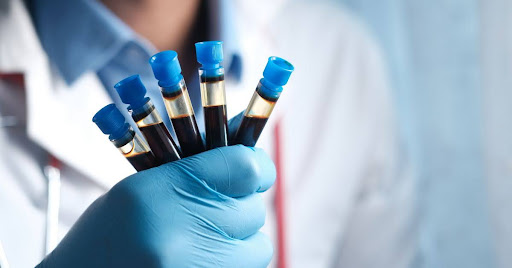Advanced Thyroid Test : Everything You Need to Know
5 min read
By DocGenie , Published on - 13 August 2021
Thyroid Disease is a dysfunction of the thyroid, which is a butterfly-shaped gland at the base of your neck. Wrapped around the windpipe, the thyroid extends along the side of your throat.
Thyroid gland hormones
The thyroid gland produces hormones like T4(thyroxine), T3(triiodothyronine) that control a number of vital body functions including metabolism. The gland produces hormones like T4 and T3 which account for 99.9% and 0.1% of thyroid hormones present in the blood respectively. That said, T3 is the most biologically activity hormone that affects the metabolism of cells. Also, after being released into the blood stream, a great amount of T4 is converted into T3. There is also the thyroid-stimulating hormone or TSH which is a pituitary hormone. Produced by the pituitary gland in your brain, it prompts the thyroid to produce thyroxine and triiodothyronine which stimulates metabolism of tissues.
Some of the thyroid hormones are bound to certain proteins present in the blood stream while some are unbound. These free thyroid hormones, called FT3 and FT4, are highly active and effective. The hormones also inform your body cells how much energy to use.
If there is any abnormality in the thyroid gland it impacts your health in many ways. Thyroid gland disorders are known to generate an array of symptoms including, extreme tiredness, anxiety, depression, and weight gain or loss. If you are facing any of these symptoms do consult one of the highly experienced general physician on DocGenie.
Most common types of thyroid diseases are -
- Thyroid nodules where a lump grows in the thyroid
- Underactive thyroid (hypothyroidism), a condition where the thyroid gland fails to produce sufficient thyroid hormone. In this condition you feel tired and cold and also gain weight.
- Hyperthyroidism is when there is overproduction of a hormone by your thyroid gland. If affected with this, your body uses energy quickly leaving you tired, and with faster heartbeat, weight loss and nervousness.
- Goiter is the abnormal enlargement of the thyroid gland located just below the Adam's apple.
- Thyroiditis is the inflammation of the thyroid gland.
- Thyroid cancer is a type of cancer of the thyroid.
What is the Advanced Thyroid Test?
An Advanced Thyroid Test is a blood test that determines the amount of TSH, T3, and T4 hormones present in the blood. The test involves collecting blood sample from your arm at any time during the day for being analyzed in a lab. The test needs no specific preparation like overnight fasting etc. There will also not be any pain beyond a small pin prick from the needle; and at best you might have some slight bruising.
Any rise or fall in the amount of thyroid hormones, like that of TSH, T3 and T4 in your blood, means there is an imbalance. The Advanced Thyroid Test finds out the hormone levels and also the causes behind the imbalance.
The test checks the thyroid functions and can assess if the symptoms you are facing could be due to disorders like an overactive or underactive thyroid. It also ensures if you’re taking the necessary nutrients required for a healthy thyroid.
What the levels indicate?
In case there is an increase in Thyroid Stimulating Hormone or TSH in the blood, it will result in hypothyroidism. And if the levels are low it could be a sign of hyperthyroidism. Also higher levels of Free Triiodothyronine (FT3) and Free Thyroxine (FT4) hormones in your body might be a sign of overactive thyroid, while lower levels may indicate an underactive thyroid.
Usually you do not need to stop taking any of your medicines before taking the test. However, it is better to inform your doctor about your ongoing medication as certain drugs might affect the thyroid function. For instance, it is vital to monitor your thyroid function if you are taking lithium. This is because lithium might stop the thyroid from functioning correctly. Doctors often suggest going for a TSH level test before starting on the medicine. If the thyroid hormone levels are found to be normal, you can do the subsequent tests in every six to 12 months. All tests at DocGenie are done in carefully controlled environments to make sure the samples obtained produce only the exact and accurate results.
Normal TSH levels typically fall between 0.4 and 4.0 milliunits per liter (mU/L). If the level is higher it might indicate an underactive thyroid. If the levels are lower than normal it could be signs of an overactive thyroid which is caused by-
- Graves’ disease in which body’s immune system attacks the thyroid gland
- Excessive iodine in your body
- Using excessive thyroid hormone medicines
- Excessive natural supplement containing thyroid hormones
If you're on steroids, dopamine, or morphine your TSH levels could be lower than normal. Moreover, if you are taking B vitamin supplements the test can falsely give lower TSH levels.
Other components of Advanced Thyroid Test include checking the levels of free T3, free T4, reverse T3, and anti-TPO antibody. All these collectively determine if you need thyroid treatment or not. Based on the results, you will need to consult a qualified general physician or GP. You can book an online doctor consultation with a top GP on DocGenie by visiting the platform.
DocGenie is an online telemedicine platform that provides you with quality healthcare from the comfort of your own space. On DocGenie, you can book an online consultation with highly-qualified doctors as well as book lab tests for home collection.
Author Details

Dr.Rachna Kucheria
MD (Community Medicine) AIIMS New Delhi
MD (Family Medicine) USC California
Obesity Medicine Certification The American Board of Obesity Medicine
30+ Years of experience


